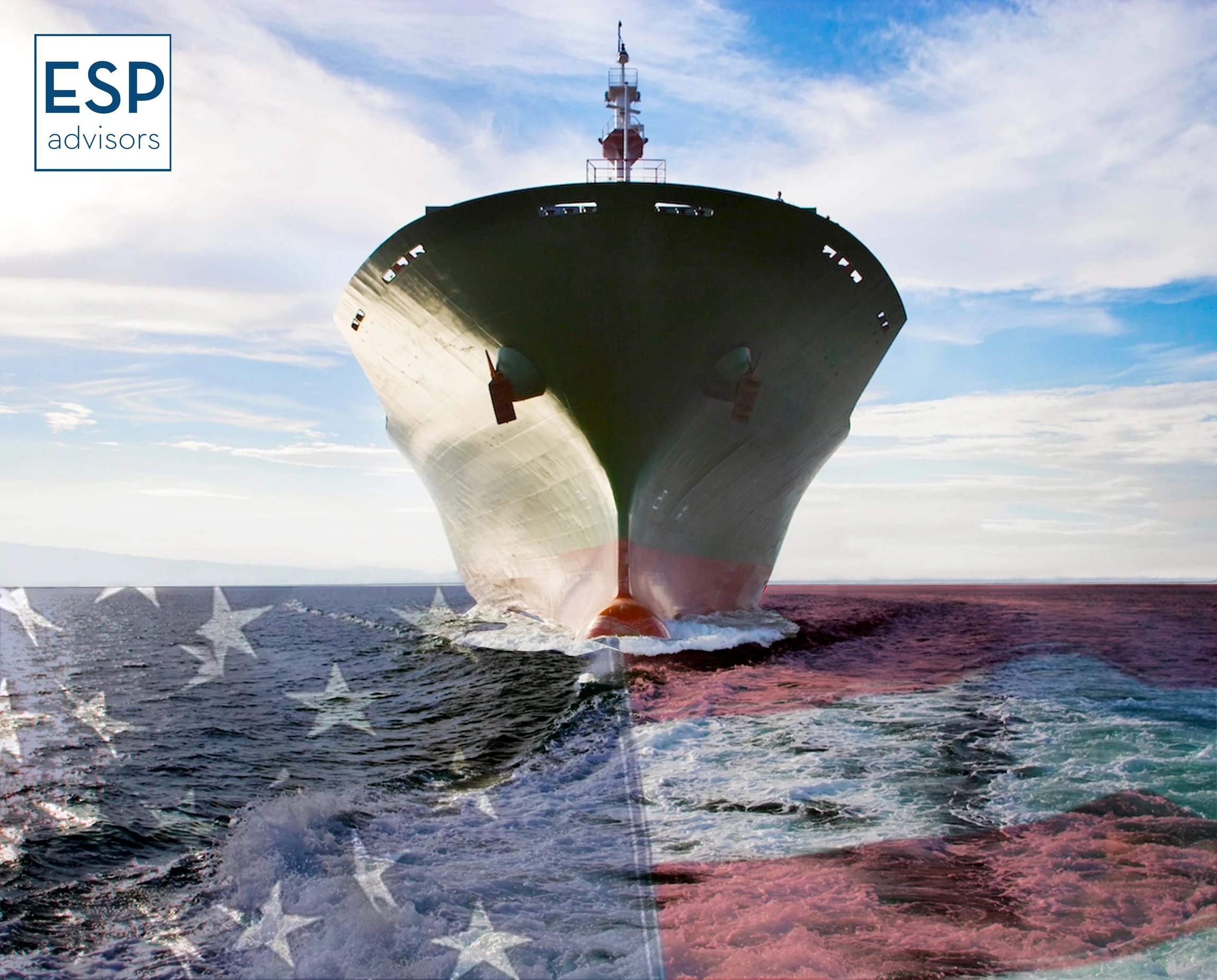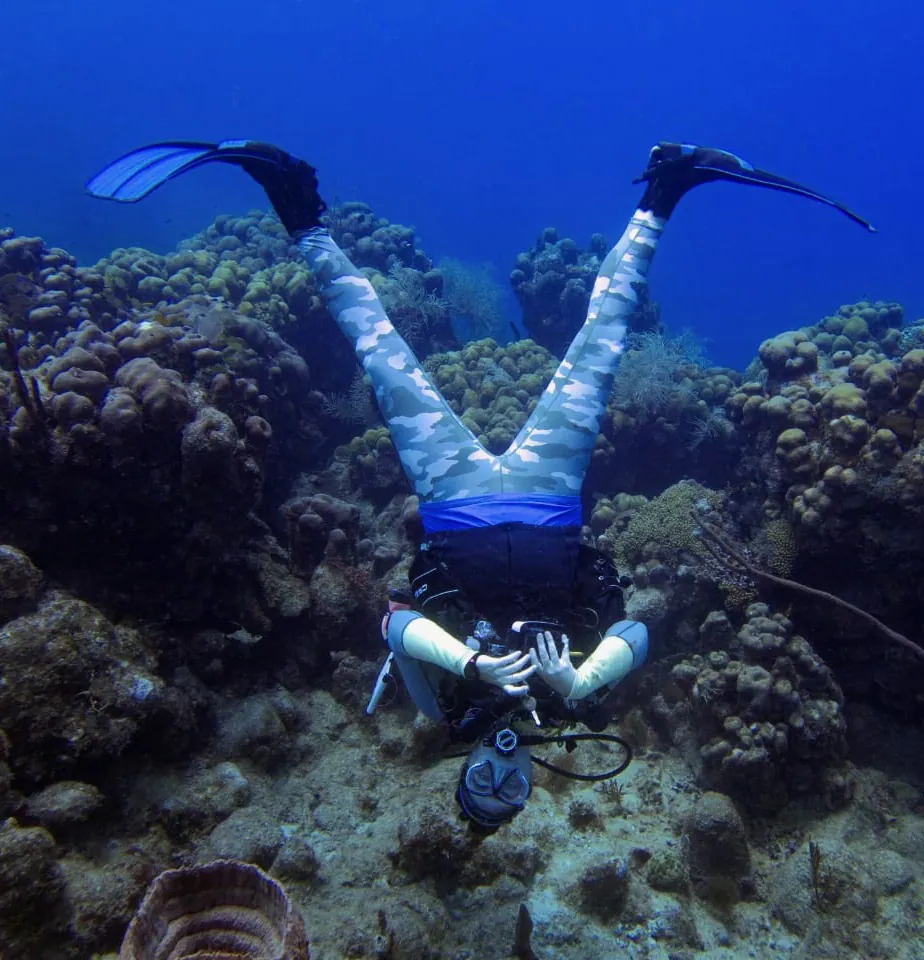Update (December 16, 2022): The Senate passed the National Defense Authorization Act (NDAA) on December 15, 2022 by a margin of 83-11. The must-pass annual defense bill now heads to President Biden’s desk for his signature. The Senate considered two amendments, including Senator Manchin’s (D-WV) controversial permitting proposal. Ultimately, both amendments were blocked, leaving the NDAA text unchanged.
Late last night, House and Senate negotiators released updated text of the National Defense Authorization Act (NDAA) package, a bipartisan bill that is introduced and passed annually. Because the NDAA is considered a “must-pass” bill, it is often used as a major vehicle to move other legislation through. The latest version — which spans over 4,400 pages — includes a number of ocean-related bills that congressional staff and outside groups have been working on for years. While some of these bills appear in their original forms, others have been pared down.
The NDAA authorizes $847 billion in spending for national defense and an additional $11 billion for other provisions (reminder: this is only authorizing language; Congress still needs to pass appropriations bills to fund government programs). It also includes other must-pass bills such as the Water Resources Development Act (WRDA), Maritime Administration Authorization Act, and the Coast Guard Authorization Act. Final negotiations came down to the wire and the bill additionally includes a major Republican priority that would repeal the military’s vaccine mandate, helping to secure GOP support. Senator Joe Manchin’s (D-WV) controversial permitting reform proposal is not included.
The House is likely to consider the NDAA this week. If the bill passes the House, the Senate will consider it next week. Read on for ocean provision highlights organized by topic area.
Ocean Data and Exploration
- Directs ocean-focused interagency committees to coordinate and align data collection efforts
- Provides statutory authority for the National Ocean Mapping, Exploration, and Characterization Council and revises several programs at NOAA that support ocean and coastal mapping, hydrographic surveys, and spatial data collection
- Authorizes federal support for Regional Ocean Partnerships
Coastal Ecosystems, Resilience, and Coral Reefs
- Authorizes the U.S. Army Corps of Engineers to rebuild and maintain projects to the dimensions necessary to address sea-level rise, extreme weather, and other climate-associated challenges, including to storm-damage-reduction projects and critical navigation jetties and breakwaters
- Reauthorizes the Tropical Forest and Coral Reef Conservation Act of 1998 at $20 million per year
- Establishes new programs and funding opportunities for coral research, conservation, and restoration
- Includes support for geographic coastal ecosystems and estuaries, including National Estuary Program entities
Maritime Transportation and Infrastructure
- Authorizes $1.6 billion to fund several key programs, including $750 million for the Port Infrastructure Development Program, $15 million for the Maritime Environmental and Technical Assistance Program, and $30 million for the Maritime Centers of Excellence
- Requires a new National Maritime Strategy to help grow the maritime economy through shipbuilding, maritime trade, and training and infrastructure
- Establishes a Maritime Innovation Center to spur new developments including green maritime fuels and ship quieting technology
- Requires a public report on the port-related infrastructure needed to support bunkering facilities for liquefied natural gas, hydrogen, ammonia, or other new marine fuels under development
- Requires the Secretary of Transportation to develop a strategy to ensure there is an adequate supply of trained United States citizen mariners sufficient to meet the operational requirements of low and zero-emission vessels
- Authorizes additional projects to sustain commercial and recreational activities at underserved community harbors, with priority to projects with economic, environmental, or societal benefits
Fisheries and Marine Life
- Requires a National Academy of Sciences study to evaluate the impacts of West Coast renewable energy development on the shipping industry and West Coast commercial, Tribal, and recreational fisheries
- Expands Arctic marine mammal rescue and response capabilities
- Establishes multiple grant programs to reduce ocean noise and threats to marine mammals from vessel traffic and port operations
- Instructs multi-agency collaboration to design and deploy a cost-effective, efficient, results-oriented, and near real-time monitoring and mitigation program for endangered or threatened cetaceans
- Bans the domestic sale of shark fins
- Authorizes a study on, and analysis of, declining U.S. salmon populations
Maritime Domain Awareness and Illegal Fishing
- Gives the U.S. Coast Guard the authority to enter into transactions, other than contracts and grants, to operate, procure, and develop prototypes for cost-effective, advanced technology for mission-critical needs
- Establishes the Unmanned System Program of land-based, cutter-based, and aircraft-based unmanned systems for use by the U.S. Coast Guard to increase the effectiveness and efficiency of mission execution
- Directs the Secretary of Commerce to develop a strategy to improve the accuracy and verifiability of the data collected for NOAA’s Seafood Import Monitoring Program (SIMP)
- Directs the Interagency Working Group on Illegal, Unreported, and Unregulated (IUU) Fishing to improve the utility of collected import data by harmonizing data standards
- Strengthens international fisheries management to combat human trafficking
- Requires the U.S. Coast Guard to submit a report that details maritime domain awareness for San Diego, California
ESP Advisors clients will receive further analysis. We’ll continue to update you as the NDAA moves through the legislative process. Follow along!











